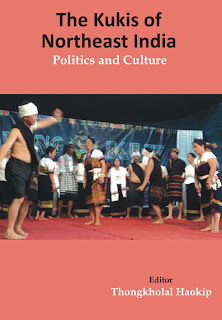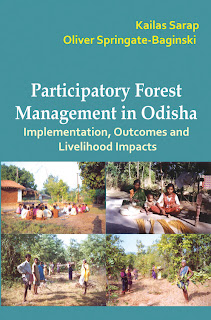The Economic and Social Issues of Financial Liberalization: Evidence from Emerging Countries Edited By: Krishna Reddy Chittedi
Publication Year 2013
ISBN-13 9789380574417
ISBN-10 938057441X
Language English
Binding Hardcover
Number of Pages 260 Pages
Price : Rs. 750.00
About the Book
This book considers the main elements of financial liberalization that has become widely prevalent in Emerging countries. The underlying force for liberalization is that people want freedom to make economic decisions and to access different forms of finance, risk management techniques and investment and portfolio diversification opportunities. Emerging markets are countries that are restructuring their economies along market-oriented lines and offer a wealth of opportunities in trade, technology transfers, and foreign direct investment. The theoretical arguments in favour of such liberalization are considered and critiqued, and the political economy of such measures is discussed. This book provides useful insights for the researchers and policy makers who are interested in critically analysis of the dynamics of the Emerging economies. It can also be useful for Research Scholars, MBA (Finance), and MA (Economics) students for Understanding the major financial issues and challenges of the Emerging economies.
About the Author
Krishna Reddy Chittedi, Currently Faculty Member at the Institute of Management and Technology (IMT),Hyderabad, Andhra Pradesh India. He submitted his PhD in the area of Finance to Jawaharlal Nehru University in collaboration with Centre for Development Studies, India. He obtained M.Phil from University of Hyderabad (Central), MA from Osmania University Hyderabad, Andhra Pradesh, India. He also qualified University Grants Commission National Eligibility Test for Lectureship (UGC-NET). He has published 16 research papers in various national and international journals and also published a book titled “Development and Integration of Stock Markets: With Special Reference to India” VDM Verlag, Germany. He has participated and presented papers in various national and International seminars and conferences in India and abroad. His research areas of interest include International Finance and Macroeconomic policy, Econometrics and Indian Agriculture. He is a life member of the World Economic Association.
Krishna Reddy Chittedi, Currently Faculty Member at the Institute of Management and Technology (IMT),Hyderabad, Andhra Pradesh India. He submitted his PhD in the area of Finance to Jawaharlal Nehru University in collaboration with Centre for Development Studies, India. He obtained M.Phil from University of Hyderabad (Central), MA from Osmania University Hyderabad, Andhra Pradesh, India. He also qualified University Grants Commission National Eligibility Test for Lectureship (UGC-NET). He has published 16 research papers in various national and international journals and also published a book titled “Development and Integration of Stock Markets: With Special Reference to India” VDM Verlag, Germany. He has participated and presented papers in various national and International seminars and conferences in India and abroad. His research areas of interest include International Finance and Macroeconomic policy, Econometrics and Indian Agriculture. He is a life member of the World Economic Association.
Table of Contents
1. Introduction
Krishna Reddy Chittedi
2. Stock Markets in Emerging countries: Pre and Post Liberalization scenario
Krishna Reddy Chittedi
3. Global Trends in Cross-border Mergers and Acquisitions
Beena S
4. Macroeconomic Influences on the Indian Equity Markets: An ARDL Approach
Sampath T
5. Current Account of India’s Balance of Payments: The Emerging Dimensions.
Justine George
6. Efficiency Aspects of Indian Banking Sector: Value Addition Approach
Dr. Parveen Chauhan
7. Financial Liberalization and Extent of Financial Exclusion in India: A case of Kerala
Sreejith A and Dr. Manju S.Nair
8. Capital Structure, Equity Ownership and Firm Performance: Evidence from India
Imran Khan
9. Small-Scale Industries in the Era of Globalisation: Role of Institutions in India
Uma Sankaran
10. Revisiting the Notion of Monetary Regionalism in South Asia: Reality or Discursive Phenomena?
Saurabh Kumar
11. Impact of Inflation Targeting on Inflation Variability: An Empirical Analysis
Babu Rao Gona
12. Neo-liberalism and Public Financing of Education in India
Shashiranjan Jha and Jatinder Singh
Krishna Reddy Chittedi
2. Stock Markets in Emerging countries: Pre and Post Liberalization scenario
Krishna Reddy Chittedi
3. Global Trends in Cross-border Mergers and Acquisitions
Beena S
4. Macroeconomic Influences on the Indian Equity Markets: An ARDL Approach
Sampath T
5. Current Account of India’s Balance of Payments: The Emerging Dimensions.
Justine George
6. Efficiency Aspects of Indian Banking Sector: Value Addition Approach
Dr. Parveen Chauhan
7. Financial Liberalization and Extent of Financial Exclusion in India: A case of Kerala
Sreejith A and Dr. Manju S.Nair
8. Capital Structure, Equity Ownership and Firm Performance: Evidence from India
Imran Khan
9. Small-Scale Industries in the Era of Globalisation: Role of Institutions in India
Uma Sankaran
10. Revisiting the Notion of Monetary Regionalism in South Asia: Reality or Discursive Phenomena?
Saurabh Kumar
11. Impact of Inflation Targeting on Inflation Variability: An Empirical Analysis
Babu Rao Gona
12. Neo-liberalism and Public Financing of Education in India
Shashiranjan Jha and Jatinder Singh





